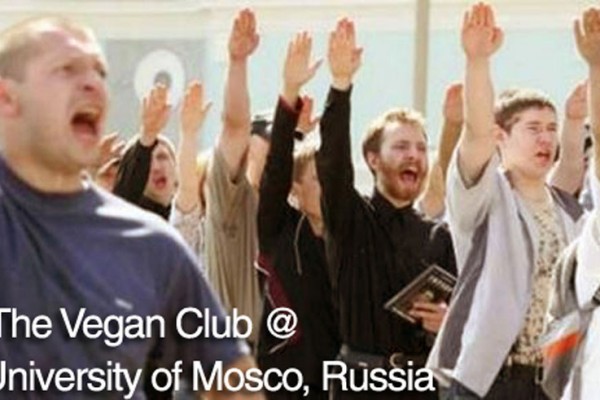Do animals have rights? Do animals have souls? What does your faith say about animal consciousness, suffering, sacrifice and stewardship?
Q: Expensive and time-consuming efforts had been made to rescue and rehabilitate animals threatened by the Gulf oil spill. Do animals have rights? Do animals have souls? What does your faith say about animal consciousness, suffering, sacrifice and stewardship? Dr. Paul Waldau, a lecturer in animal law at Harvard Law School , says, “Religion is a major player in the way humans think about other living beings.” What does that mean to you?
We live in a society where more and more of us attempt to consider the effects we have as individuals and as a society on other nations, on other people, on the environment, etc. We increasingly ask ourselves, “Do our actions infringe on others’ rights?” When this questions is directed toward the issue of animals, the answer is an easy one for me: absolutely! In the U.S. alone, we are responsible for the torture and slaughter of more than 25 million animals EVERY SINGLE DAY. While many may be astounded by the numbers and not believe them, others will simply say, “So what?”, “Why should we care?”, or “They are only animals.” However, the reasons to care are many, and I will try to address a few.
Most followers of the Abrahamic religious traditions do not believe that animals have souls. These religious traditions, as well as most cultures, promote the belief that animals are simply here for human benefit. Their followers have been taught and like to believe that humans are the superior species on earth, and that all of nature is simply for our use. We are the only living beings that matter, so we can pretty much do what we want with animals: own them, play with them, kill them, eat them, wear their body parts, destroy their homes and environment, etc. This would not be as easy to do if people actually stopped to consider whether animals have souls.
A good way to begin to deal with this question is to look at what one conceives a soul to be. In the vast majority of religious and philosophical traditions in which there is a belief in a soul, it is understood to be intimately connected with the life force within the body. It is what animates us when we are alive and what leaves the body when we die.
Thus, if an entity is alive, there must be a life force within, and there must be a soul. It would seem, then, that one who believes in the existence of a human soul would have to see the likelihood that animals have souls as well. If not, what makes them alive (they don’t have batteries or keys to wind)? Those who reject this understanding of animals likely do so because it is inconsistent with what they have been taught or choose to believe. If they want to reject it on these grounds, they have the right to, but they do so in spite of a rational conclusion based on accepted characteristics of the soul.
“We are the only living beings that matter, so we can pretty much do what we want with animals: own them, play with them, kill them, eat them, wear their body parts, destroy their homes and environment, etc. This would not be as easy to do if people actually stopped to consider whether animals have souls.”
Actually, when most Americans eat meat, they don’t stop to think about its source, or how the animal, whose body parts they are consuming, was raised, treated, and killed. They don’t stop to think whether animals have souls. Meat eaters, who otherwise care about the consequences of their actions or who argue for the rights of minorities or oppressed groups, tend to create a psychological distance between what they eat and the fact that it came from the body of an animal that was imprisoned most or all of its life, usually suffered tortuous treatment, and was then killed, all to satisfy human taste buds and an addiction to flesh consumption. Meat eaters are typically raised to ignore these contridictions and rarely ever discuss or think about them. To them, meat is “just food”.
Those who want a more peaceful and non-violent world or who support the rights of the oppressed should consider visiting a slaughterhouse for a day or at least watching a video at www.meat.org. Anyone who will take the time to do so will have a much better understanding of how their daily flesh consumption is directly responsible for the extremely inhumane torture of animals that occurs 24/7 all over the country.

The pop star Lady Gaga poses covered in raw meat for the latest issue of Vogue Hommes Japan. I guess this is what some people think animals are for.
Many people have been fooled by the meat industry into thinking they must consume flesh in order to survive or that vegetarians cannot be healthy. People who think this need to open their eyes and minds to a broader understanding of health. There is increasing medical evidence that not only is meat eating unnecessary for health, but that it actually causes many of the health problems Americans face, especially diseases like heart attacks, obesity, cancer, etc. Not only have many sick people turned to vegetarianism for a cure but a significant number of professional athletes have become vegetarian because they found that it helps them to become stronger in a more healthy way. Two of the earliest vegetarian athletes that I learned about growing up were Roger Bannister and John Landy. In 1953 they became the first two humans to officially run a mile in under four minutes. Both attributed their diet to their amazing accomplishments. There have been and continue to be many more athletes who are vegetarian, as well as millions of regular people all over the world, especially in India.
Meat eaters are typically raised to ignore these contridictions and rarely ever discuss or think about them. To them, meat is just food.
The indigenous religions of India (Hinduism, Buddhism, Jainism, and Sikhism) promote a kinship with all life forms that is unique among the world’s major religions. Although not all their adherents follow it, these traditions as a whole take non-violence seriously, and one of the central reasons that most do is the belief that animals have souls. Clearly, when it comes to the treatment of animals, these religions stand out and lead the way. One of the things that first attracted me to Hinduism was Mahatma Gandhi’s views on non-violence and his respect for animals and nature. Although I became a vegetarian awhile before I adopted Hinduism as my chosen way of life, Gandhi was a great influence on me. The more I learned about the tradition, the more I found within it beliefs that resonated with my own evolving feelings and views about the sanctity of life and the evils inherent in most incidents of violence.
I know it is much easier to believe animals have no souls, that they somehow are alive without one, and that their existence is simply to fill our bellies. However, at some point, many of us come to the realization that animals are conscious beings, with desires and fears, aspirations and frustrations. They experience happiness and sadness, comfort and pain. We see this in the pets who live with us and we would be extremely pained if anyone even thought about treating them the way millions of animals are treated every day in America. Yet, most of us pretend that all the other animals we don’t know personally are somehow different. Their lives don’t really matter, the torture they experience doesn’t really matter, their slaughter doesn’t really matter.
“Many of us come to the realization that our pets are conscious beings, with desires and fears, aspirations and frustrations. They experience happiness and sadness, comfort and pain. Yet, most of us pretend that all the other animals we don’t know personally are somehow different.”
I understand and acknowledge that in some climates and places, meat eating, or at least fishing, is necessary for survival, but these places are in the minority, and America is not one of them (except maybe in portions of Alaska).
Nevertheless, I believe that when we eat meat, we perpetuate violence in the world, and we enhance its presence in our lives, either directly or indirectly. The animals whose dead bodies or body parts end up on American plates were, for the most part, raised in an abusive way before they were killed, and far too many of us turn our backs to that reality. We do so because it is simply easier and more comfortable, not because we need meat to survive, or because there is no other food option.
When there is harmony in the world, there is peace. Disharmony leads imbalance, disease, and destruction. The BP oil spill is a product of an approach to nature that reeks of an attitude of destruction and has little or no sense of respect or harmony for nature. This does not mean that we cannot use things in nature for our benefit, and sometimes this includes animals, but that we should do so in a respectful way. As citizens of a country that uses more energy than any other country, we have to share with BP a moral, if not financial, responsibility for what had happened. How many of us who complain about the ongoing environmental degradation have altered our lives to use alternate energy instead?
How many of us drive only alternate energy vehicles, have solar panels on our homes, recycle all our waste, plant trees wherever we can, and stop adding to the massive pollution caused by the livestock industry? Not many. There is an environmental crisis that is apparent today and has therefore gotten most of our attention, but there is a morality crisis that has been going on for a long time in the way we treat Mother Earth and her residents, and very few of us even think about it. While many individual Christians, Jews, and Muslims act in environmentally conscious ways, it is time that Western religions start including in their teachings a genuine and proactive concern for nature and for the other beings that share the Earth with us. They claim to believe that all of creation is from God. It is time they begin to treat these divine creations with the respect they deserve.
I realize that the views I have expressed will likely upset some. I am only expressing my personal beliefs, and I do so with the hope of inspiring a bit more awareness about the non-human beings and other forms of life that are such beautiful and important parts of the natural world. Vegetarianism is great for health, and that is why I first became a vegetarian. However, I remain a vegetarian for ethical reasons. Meat eating and the resulting wholesale slaughter of animals causes more destruction to our environment, our health, and our relationship with the world than any other single cause. More than that, it promotes a careless attitude toward life and a mind set that makes violence more acceptable. I have countless friends and family members who are not vegetarian, and this does not prevent me from having deep respect for many of them. At the same time, I do feel a great sense of sadness for all the suffering that is caused by the food choices of meat eaters. For all those people who consider themselves to be pro-peace or pro-life and who are bothered by all the violence in the world, I would only ask them to look at their dinner plate and reflect for a moment on how much hard work fighting injustice and violence will be offset by the torture, suffering, and rights abuses that occur simply so they can consume a piece of meat.
Vegetarian Trend on the Rise in USA
7.3 Million Americans Are Vegetarians & Additional 22.8 Million Follow a Vegetarian-Inclined Diet
The just-released “Vegetarianism in America” study, published by Vegetarian Times (vegetariantimes.com), shows that 3.2 percent of U.S. adults, or 7.3 million people, follow a vegetarian-based diet. Approximately 0.5 percent, or 1 million, of those are vegans, who consume no animal products at all. In addition, 10 percent of U.S., adults, or 22.8 million people, say they largely follow a vegetarian-inclined diet.
-From Vegetariantimes.com
Koreans Killing Dogs for “Hot-Dogs”
Most of you will agree that this is a most unethical scene, but what is the difference between this scene and your modern American slaughterhouse and its killing wholesale of baby calves? Is there such a thing as “ethical-killing” of animals. Why is it that humans can demand rights, and yet strip rights away from animals. Are they not beings with a need for affection and love?








